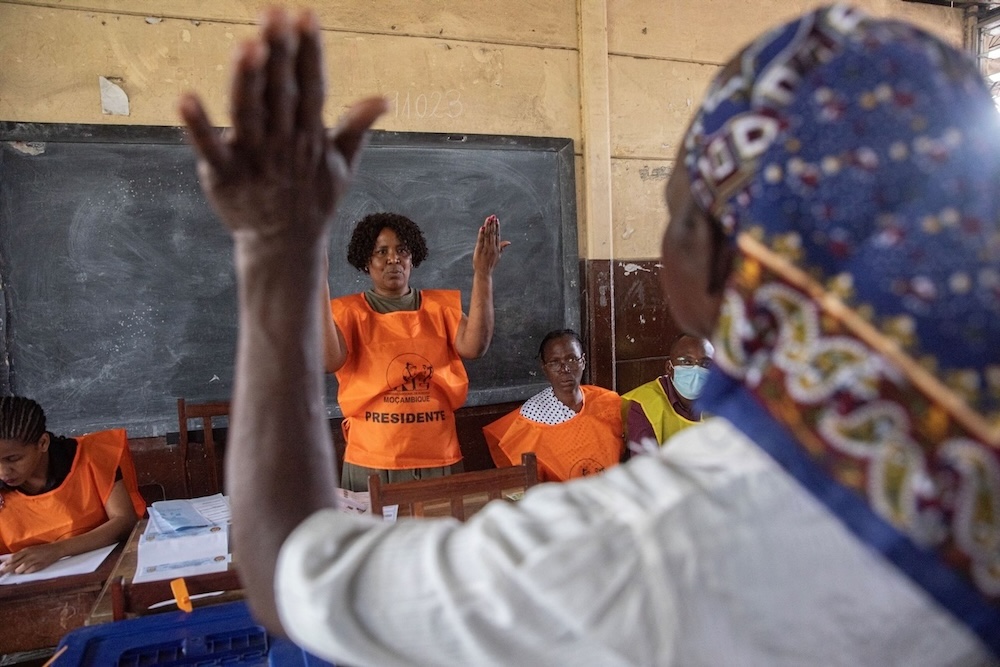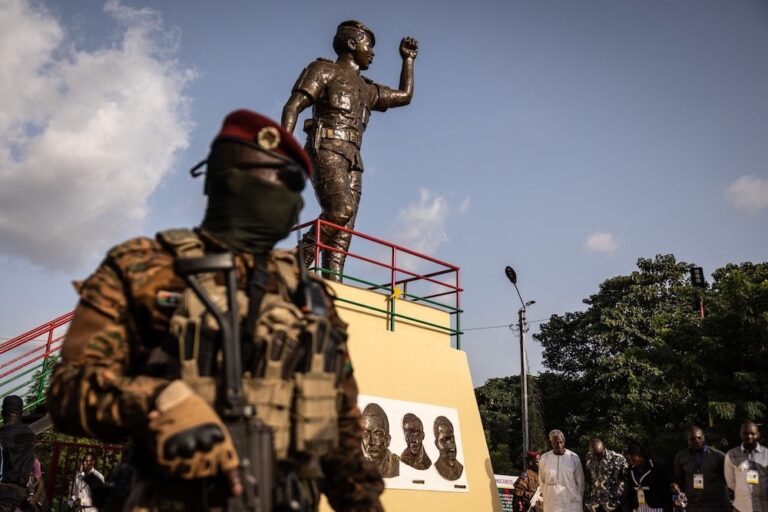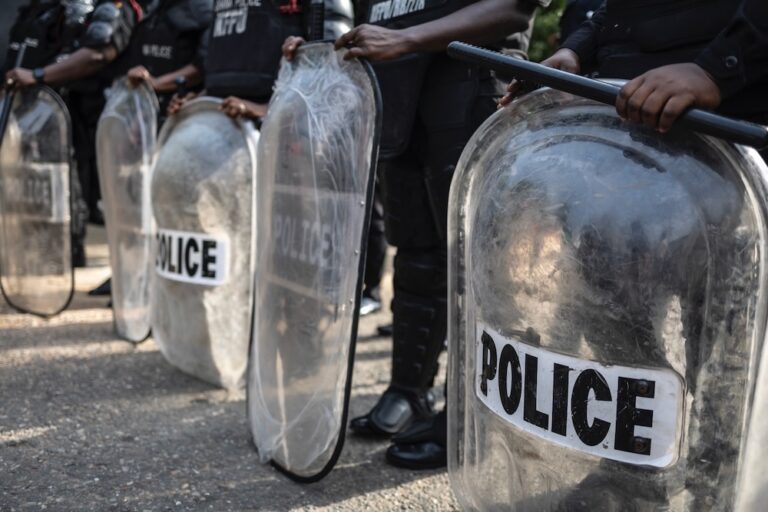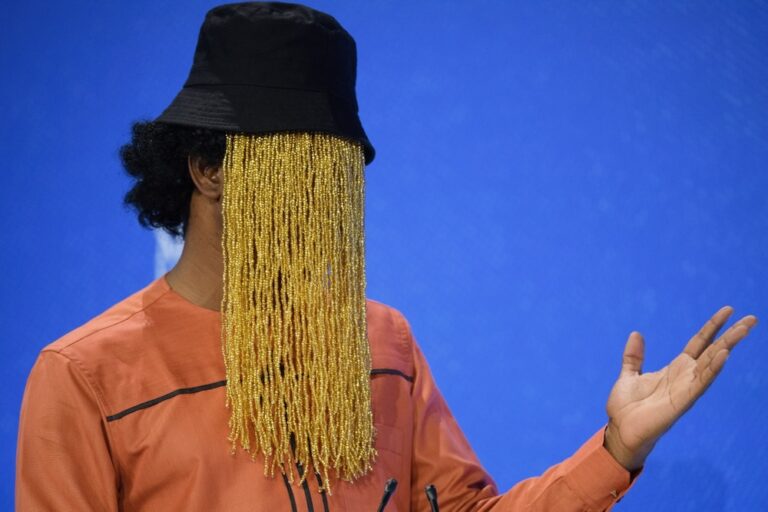October 2024 in Africa: A free expression and civic space round-up produced by IFEX's Regional Editor Reyhana Masters, based on IFEX member reports and news from the region.
West Africa: Newly formed body bolsters legal protection
To address the mounting legal challenges confronting journalists and activists across West Africa, the Media Foundation for West Africa (MFWA) launched the West Africa Network of Activists and Media Defense Lawyers (WANAMDEL). The newly established network, consisting of 14 defence lawyers from 11 West African nations, will focus on providing legal support to those in need.
The inauguration ceremony was held in Accra on 9 October and attended by 13 lawyers from countries that included Senegal, Togo, Liberia, Sierra Leone, Nigeria, Guinea, Guinea-Bissau, Côte d’Ivoire, Benin, The Gambia, and Ghana. The MFWA pledges to back WANAMDEL with both financial and material resources, ensuring the network’s capacity to deliver effective and coordinated legal defence initiatives.
Niger: New directive annihilates rights
Niger’s issuance of a new directive, Order No. 2024-43, is poised to further erode rights with its establishment of an automated file containing personal data of individuals suspected of terrorism. The broad criteria contained in the directive are deficient in due process and lack sufficient redress mechanisms, posing a grave threat to privacy rights and data protection.
Justice and human rights minister Alio Dauda’s insistence that the ordinance is based on a robust legal framework is disputed by Nigerién lawyer Moussa Coulibaly, who points out that the low standard allows for unverified information to be utilised as the basis for including someone on the database.
Individuals who may end up on the database face significant consequences, including both national and international travel restrictions, the freezing of their assets, and the potential loss of their Nigerién nationality.
Human Rights Watch points out: “The ordinance does not provide listed individuals or entities with an effective mechanism to contest their inclusion in the list or obtain redress if wrongfully included. It does not require notifying them before they are included in the database, effectively denying them a meaningful opportunity to contest their placement.”
Uganda: LGBTQI+ individuals forced to transform online presence
In October, Amnesty International launched their report: “Everybody Here Is Having Two Lives or Phones”, detailing the disturbing escalation in attacks against Uganda’s LGBTQI+ community following the passage of the Anti-Homosexuality Act (AHA) 2023, last year.
The Act, which is characterised by vague and broadly defined language, entrenches discrimination as it gives rise to narratives that “reinforce the stereotyping of LGBTQ individuals, leading to emotional distress, social ostracization, economic hardship and, in some cases, physical violence.”
The findings also reveal that incidents of blackmail are on the rise “as LGBTQ people now risk being arrested and charged under draconian provisions if they resist the demands of blackmailers, while simultaneously being unable to seek any assistance from law enforcement authorities or any other institutions. In fact, this research found that in some cases police authorities and other law enforcement officials have also engaged in blackmailing themselves.”
It has forced people into altering their digital presence and behaviour, including deactivating their accounts, deleting or censoring posts, and unfollowing accounts that share LGBTQI+ content, to avoid being outed.
Burkina Faso: Authorities admit to conscription of journalists
Four months after the disappearance of three journalists – Serge Oulon, Adama Bayala, and Kalifara Séré – authorities have finally admitted that they were conscripted into the army. The director general for human rights at Burkina Faso’s justice ministry shared this information on 24 October, at the 18th Session of the African Commission on Human and Peoples’ Rights (ACHPR) in Banjul.
Séré was the first of the three to be reported missing and five days later, on 24 June, the MFWA reported that Oulon had been abducted by individuals claiming to be connected to the National Intelligence Agency in Ouagadougou. Just four days later, family and colleagues said they had not heard from Bayala since he had left his office on 28 June.
The continuing decline of media freedom, constriction of civic space and human rights abuses have been noted by several advocacy organisations. Back in June, the MFWA called for Burkina Faso to ensure a more democratic media environment. Earlier in October, the country’s communications regulator banned the rebroadcasting of foreign radio programmes until further notice and suspended broadcasting of US public media outlet Voice of America (VOA) for three months.
Journalists, editors and media advocacy organisations including Reporters Without Borders are calling on authorities for more information about Séré, Oulon, and Bayala, as well as journalist Alain Traoré, abducted in July, whose whereabouts are still unknown.
“These journalists must be reunited with their families without further delay, and given the freedom to exercise their public interest work of informing us all.”
Mozambique elections symbolise electoral challenges
Mozambique’s pre and post-electoral period graphically illustrates troubling trends seen across the continent, where the struggle for power leads to shrinking civic space, attacks on civil liberties, and the suppression of oppositional voices.
Characterised by a low voter turnout, Mozambique’s 9 October election for the appointment of a new president and the selection of the national assembly member and provincial government took place against a backdrop of harassment, threats, physical assault, and arbitrary arrest and detention of journalists and civil society activists.
In a letter, the chairperson of the Media Institute of Southern Africa, Golden Maunganidze, asked the African Commission on Human and Peoples’ Rights (ACHPR) Special Rapporteur on Freedom of Expression and Access to Information, Commissioner Ourveena Gerveesha Topsy-Sonoo, “to intervene by engaging Mozambican authorities to ensure the attacks on the journalists on 21 October is fully and transparently investigated.”
The Gambia: Government officials asked to use self-regulatory mechanisms
The Gambia Press Union (GPU) has expressed concern over two major lawsuits targeting media outlets.
President Adama Barrow is suing The Voice for an article claiming he had chosen a successor as part of his exit strategy. Musa Sheriff, the editor of The Voice, was arrested and charged with “false publication and broadcasting” over the article.
In a parallel process, The Gambia’s environment minister Rohey John Manjang filed a libel and slander suit against reporter Kebba Ansu Manneh and The Alkamba Times for his story alleging that she and the former governor of the Lower River Region (LRR) were involved in illicit logging deals.
Concerned about the potential impact of these legal actions, GPU secretary-general Modou Joof asked government officials – President Barrow and Minister Manjang – “to drop the suits and seek redress at the Media Council of The Gambia – an independent self-regulatory mechanism for the Gambian media – with all parties agreeing to the outcome in order to safeguard press freedom, on press freedom and journalists’ ability to report without fear of legal consequences.”



